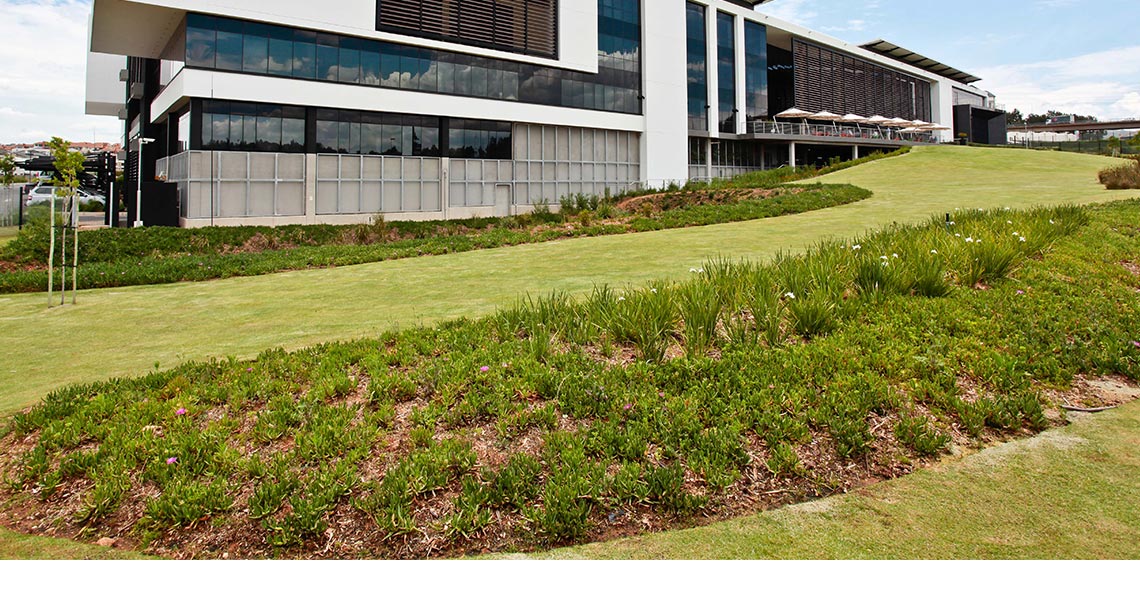In the past decade, Facilities Management has become an integral part of the property and construction sector in Africa. It is now standard practice for a property owner (developer) to engage with facilities management companies to plan and design work spaces from a practical and operational point of view.
Nevertheless, despite its phenomenal growth, facilities management remains a misunderstood discipline in most African countries, even amongst supposedly well-informed property owners. Indeed, it is only through better understanding of the scope of the areas that facilities management covers that property developers can make the most of this vital service.
Lydia Hendricks, the Business Development Director at Facilities Management Solutions (Pty) Ltd (FM Solutions), a South African-based facilities management firm with a big client portfolio in the region, sheds more light on the scope of facilities management, factors behind its growth, and its prospects for growth to property developers in Africa through Construction Review. FM Solutions is a subsidiary of the AFMS Group (Pty) Ltd.
Segments
Hendricks says the discipline of Facilities Management covers two primary areas, namely, space and infrastructure, which include planning, design, workplace, construction, lease, occupancy, maintenance, furniture and cleaning and people, management and planning, which include support services such as catering, information computer technology, HR, accounting, marketing and hospitality.
“The first refers to the physical built environment with a focus on work space and building infrastructure. The second covers the people and the organization, and is related to work psychology and occupational physiology,” she explains.
An essential practice
Contrary to the general misconception, facilities management is not a new phenomenon. In fact, for decades, all businesses have applied some form of facilities management, as where people, place and process meet, there is a need for this discipline. However, in the modern age, facilities management has become integral as most contemporary buildings have sophisticated built-in systems and engineering that requires proper asset management and structured support services so that the investment is leveraged and upholds the purpose of its design throughout its life-cycle, Hendricks observes. “Companies tend to outsource this service to professional companies to, not only transfer the related risks, but also to streamline their operations and bring about measured service solutions that is flexible and fit for purpose for them and this trend is growing at a rapid pace”.
Tenants/ building owners are more astute in their workspace demands. Hence, they are engaging facilities management professionals to run their facilities and protect their interests. Tenants aim to streamline their operations and bring about a professional, safe and reliable work environment for their staff.
Building owners have realized that, through involving facilities management specialists, they can reduce operating costs, manage their risk and/ or create an efficient and reliable support service aligned with their ethics and values to enable the business to operate optimally. And how does this affect staff who provide this service internally? Well, she says, nothing changes really except that they are transferred to the FM company, upskilled and able to pursue a career path in this thriving industry, simply because managing buildings is our expertise and core business.
Noticeably, more and more developers are consulting facilities management companies to participate at the design phase so as to optimise building design, as they are becoming more aware of long-term challenges of running a poorly designed building.
Factors driving demand
Hendricks says the following can generally be considered as the factors driving the demand for facilities management in African countries and globally:
- Ailing and mismanaged infrastructure
- Information and data that qualifies maintenance spend
- Sustainability – Conservation of natural resources
- Sophisticated built in systems requiring expertise to manage such equipment efficiently through its lifecycle
- Effective business support that enables business to focus on their core business
- Management of Risk
- Effective Maintenance that ensures reliability of built in systems
- Work environment that is productive and emulates company culture
- Effective workspaces that promotes business collaboration and results
Cognisant of the above-mentioned factors, the engineering and architectural fraternity is already recognizing the efficiencies facilities management brings, and, as a result, bringing in facilities management experts at the design phase of a project.
Continuous evolution
In this ever changing economy, products and service standards and expectations will increase as business strive to keep a competitive edge, and the built environment is no exception. In fact, Hendricks predicts that the demand for modern and sustainable buildings will heighten the awareness of ensuring the longevity and quality of structures amongst property owners, particularly when it comes to the ongoing cost of maintenance and management of the infrastructure. This will lead to further increase in the demand for facilities management expertise due to the flexibility and efficiencies it brings for business. “In the coming years, modern building design will continue to evolve in terms of sustainability and efficiencies, as more property owners realize the value of facilities management and the positive impact it has on the bottom-line.”

